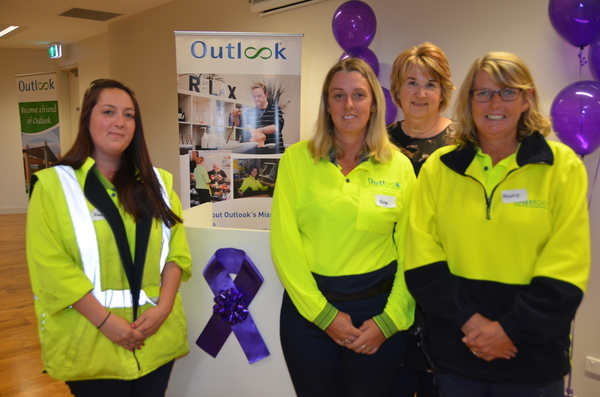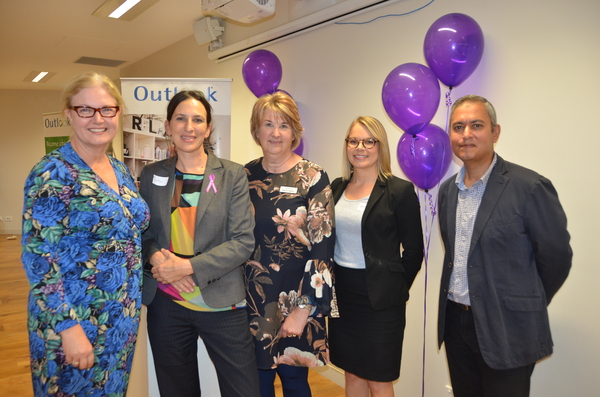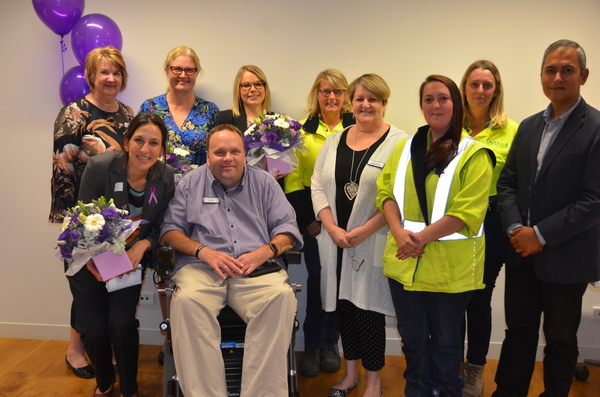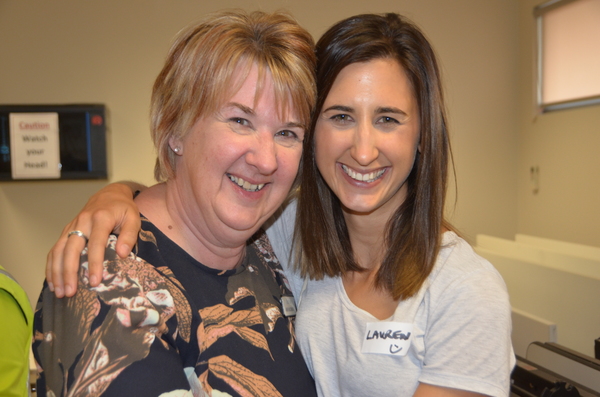
By Garry Howe
Diverse teams yield the best outcomes – and better the balance, better the world.
Those messages came through loud and clear at an International Women’s Day lunch at Outlook in Pakenham last Friday 8 March.
To underline that point, Outlook deputy CEO Ann McCormack introduced its management team at the Hampton Park recycling facility – contract manager Karen Hunt and site managers Tina Peck and Shannen Egbers. They represent Outlook’s first all-female management team in that area.
“They are all doing a great job,” Ms McCormack said. “They are just as capable as anyone else in what has been a male-dominated environment.”
Georgina McClure, one of three guest speakers at the lunch, said she had worked in both female and male dominated industries in 15 years working in the human resources field.
She is now HR manager for CCF-Civil Construction Federation, involved with the Metro Tunnel project.
“One thing that is unquestionable is that diverse teams yield the best outcomes,” she said.
“Overall I’ve had very positive experiences and met some amazing people along the way. But unfortunately like many of my female friends and colleagues I’ve experienced some instances of sexism, sexual harassment and judgements on whether I can do my job based on my appearance and my gender.
“I do think it’s getting better with generational change, but we still have some way to go.”
Ms McClure said women made up 50.2 per cent of the population, yet were not represented that way in government and business.
“Change is necessary and whilst targets aren’t ideal, I think it draws awareness and brings about accountability in the attraction and retention of our women in our businesses,” she said.
“A higher proportion of women are graduating from university (approximately 58 per cent compared to 42 per cent of males) but this is no carrying through into leadership roles in the workforce.”
Ms McClure was confident more women would be attracted to the mining and construction industries, given the greater number of female graduates coming out of the education institutions.
She said it was crucial that men need to make way and support women to come up the ranks, with women less confident than men of taking a leap of faith unless they were 100 per cent confident they were skilled and trained for the task. Men were more likely to have ago anyway.
“To achieve balance, we also need to look at how we manage flexibility in the workplace,” she said.
“I know a number of women who have struggled to get back to the roles they were in prior to having a family, often taking a side step or a step down jut to balance their caring responsibility.
“But this isn’t just about women, it is about men and giving them the opportunity to have flexible arrangements so they can be primary care givers, allowing women to continue in their roles. We need to make it acceptable and okey for men to do this.
“This needs to start at the top so men can look up to senior leaders and see that they are doing it to reassure them it is okay to ask for flexible arrangements.”
Ms McClure said there were things that could be done internally to engage and develop more women through targeted training and development, mentoring programs and succession planning.
“A diverse team can better solve problems, allows a team to work to their individual strength, giving a greater sense of purpose, allows for productive conflict and yields increased creativity and innovation.
“Balance isn’t just gender – it’s embracing people of different ages, race, religion and background.
“A diverse room brings a diversity of thought and from a business and government and community perspective, we can’t live without that.”
Outlook CEO Sam Sondhi said the Outlook community was a more inclusive society than most, transcending disability.
Mr Sondhi said he was proud of the 50-50 gender split at board level, in management and through the frontline staff, but their efforts to get disable people into employment was still male dominated.
He vowed to improve that statistic.
“We will aspire to create more employment opportunities for women with a disability,” he said.
Mr Sondhi told of a conversation he had that morning with his eight-year-old daughter.
When asked what she wanted to be when she grew up, after an initial shrug of the shoulders, she said she wanted to “a CEO, like Daddy”.
“We have to ensure, as parents and as a community, that she has the opportunity to do that.”
New Bass MP Jordan Crugnale reflected upon the fact that the Labor state caucus currently comprised 48 per cent women and that the Andrews Government was the first in history to have 50 per cent women in Cabinet.
“We are at an exciting point in history where the world does actually expect balance,” she said.
New Cardinia CEO Carol Jeffs reflected on the success of the Me Too movement, the implementation of recommendations of the Royal Commission into Family Violence and several outspoken women in Federal politics saying that “enough is enough”.
“There has been a seismic shift in attitude in the past year, but unfortunately the data tells a different story,” she said.
A gender pay gap of up to 29 per cent still existed and despite the fact that 59 per cent of bachelor degrees went to women, women graduates started earning less in 15 of 19 cases.
Ms Jeffs said only 17 of 79 council CEOs in Victoria are women.
“Gender balance is not a women’s issue, it’s a business and community issue,” she said.
“The top 10 most profitable businesses in the world have gender equality.
“I have two daughters and a step daughter and I am sick of talking about it. I look forward to a world where we stop talking about gender balance.”









